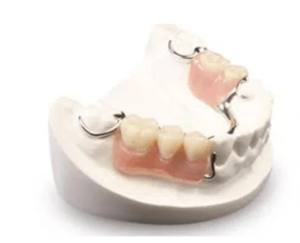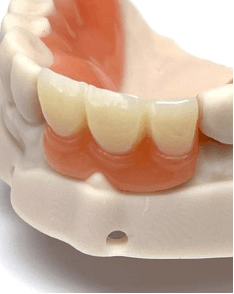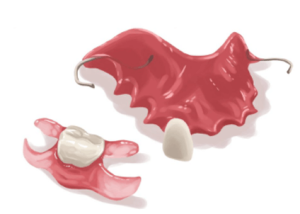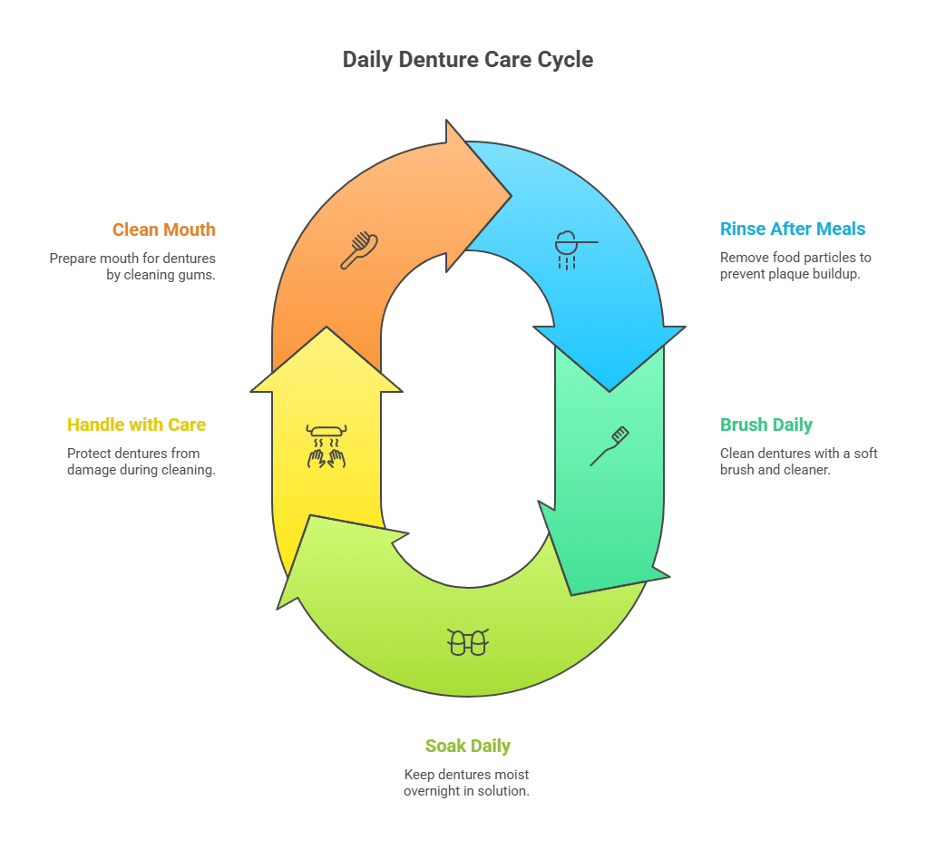Losing teeth can impact more than just your smile; it affects your ability to eat, speak, and feel confident. Dentures offer a proven solution to restore function and aesthetics, allowing you to reclaim a comfortable and active life. Whether you’re missing all your teeth or just a few, understanding the options available is the first step. In Markham, residents have access to various denture solutions designed to fit individual needs and lifestyles.
This guide explores the types of dentures, how they’re fitted and cared for, and crucial information on addressing common issues like ill-fitting partial dentures.
Complete Dentures vs. Partial Dentures: Which is Right for You?
The primary distinction in dentures lies in how many teeth they replace:
- Complete Dentures: These are used when all the teeth in either the upper or lower jaw (or both) are missing. They are typically made of acrylic and rest directly on the gums. They rely on suction, adhesives, and the underlying bone structure for stability.
- Partial Dentures: These are utilized when some natural teeth remain. A partial denture replaces only the missing teeth, filling the gaps and preventing the remaining teeth from shifting. They attach to your existing teeth using clasps or other connectors.
Choosing between complete and partial dentures depends entirely on your specific oral health situation.
A thorough examination by a dental professional in Markham is essential to determine the most suitable option for your needs.
Exploring Types of Partial Dentures Available
Partial dentures come in various designs and materials, each offering different benefits in terms of durability, comfort, and aesthetics.
Understanding these types can help you discuss the best choice with your dentist or denturist:

- Cast Metal Partial Dentures: These are generally considered highly durable and stable. They consist of a cast metal framework (often cobalt-chrome) that supports acrylic teeth and gum-coloured base material. The metal framework is very thin yet strong and attaches to natural teeth with clasps.
- Pros: Very strong, excellent fit, minimal bulk, provides good support for remaining teeth.
- Cons: Metal clasps can sometimes be visible, potentially higher initial cost.

- Acrylic Partial Dentures: Also known as “flippers,” these are made entirely of acrylic (plastic). They are typically bulkier than cast metal dentures but can be a cost-effective and quick solution, often used as a temporary replacement while waiting for a permanent denture or during the healing phase after extractions.
- Pros: More affordable, quicker to fabricate, easy to add more teeth if needed.
- Cons: Less durable, can feel bulkier, clasps (usually made of wire) may be less secure and more visible.
- Flexible Partial Dentures: Made from a flexible, thermoplastic material (like nylon resin, often branded as Valplast), these dentures are known for their comfort and aesthetic appeal. The base material is translucent and blends with the gum tissue, and clasps are also made of the flexible material, often less noticeable than metal.
- Pros: High comfort due to flexibility, excellent aesthetics (no visible metal), hypoallergenic for some.
- Cons: Can be more challenging to repair or reline, may not be suitable for all cases, potentially higher cost than acrylic.

- Flipper Dentures: As mentioned under acrylic partials, these are lightweight, temporary appliances used to replace one or a few missing teeth. They are primarily cosmetic and not designed for heavy chewing.
The choice among these types depends on factors like the number and location of missing teeth, the condition of remaining teeth and gums, budget, and aesthetic preferences.
Understanding Denture Materials
Beyond the framework design, the materials used for the teeth and base also vary:
- Acrylic Resin: The most common material for denture bases and teeth. It’s versatile, relatively easy to work with, and cost-effective. Acrylic teeth can be stained or wear down over time.
- Cast Metal: Used for the framework in partial dentures due to its strength and durability.
- Porcelain: Historically used for denture teeth, porcelain offers excellent aesthetics and durability. However, they can be brittle, heavy, and potentially wear down natural opposing teeth, making them less common today compared to high-quality acrylic teeth.
Modern denture fabrication utilizes advanced materials and techniques to create dentures that look natural and function effectively.
The Denture Fitting Process: What to Expect
Getting dentures is a process that requires several appointments to ensure a precise and comfortable fit.
While the specifics can vary slightly, the general steps followed by dental clinics in Markham include:
- Initial Consultation and Assessment: Your dentist or denturist examines your mouth, discusses your tooth replacement needs, and helps you choose the best type of denture. X-rays and measurements are taken.
- Taking Impressions: Detailed impressions (moulds) of your jaw and any remaining teeth are created. These impressions are used to build a model of your mouth.
- Creating a Wax or Acrylic Try-In: Based on the models, a preliminary version of your denture is made using wax or acrylic. You’ll try this in to check the fit, bite, and appearance before the final denture is fabricated. Adjustments are made at this stage.
- Final Fitting: Once the final denture is ready, you’ll try it in. The dental professional ensures it fits correctly, feels comfortable, and that your bite is aligned. Minor adjustments may be needed.
- Adjustments and Follow-Up: It’s common to require a few adjustment appointments after receiving your new dentures as your mouth adapts. Your dental team will guide you on wearing and caring for your dentures and schedule follow-up visits.
This careful, multi-step process is crucial for achieving a well-fitting denture that promotes comfort and oral health.
Essential Denture Care and Maintenance
Proper care is vital to keep your dentures clean, functioning correctly, and to maintain the health of your gums and any remaining teeth. A consistent daily routine is key:

- Clean After Eating: Rinse your dentures after meals to remove food particles.
- Brush Daily: Using a soft-bristle brush and a non-abrasive denture cleaner (not regular toothpaste, which can be too abrasive), gently brush all surfaces of your dentures to remove plaque and food debris.
- Soak Daily: Most dentures need to be kept moist to retain their shape. Soak them overnight in a denture cleaning solution or plain water. Follow the cleaner manufacturer’s instructions.
- Handle with Care: Always place a towel or fill the sink with water when cleaning your dentures, in case you drop them.
- Clean Your Mouth: Before inserting dentures, clean your gums, tongue, and any remaining natural teeth with a soft toothbrush.
- Cleaning Partial Dentures with Vinegar: Some sources suggest using a diluted vinegar solution (equal parts white vinegar and water) as a soak for dentures, particularly to help remove calcium deposits (tartar). While vinegar can be effective for this, it’s mildly acidic.
It’s best used occasionally and followed by thorough rinsing and soaking in a regular cleaning solution or water.
Always consult with your dental professional before using household products like vinegar for denture cleaning to ensure it’s appropriate for your specific denture material and doesn’t cause damage.
Addressing Common Denture Problems
Even with the best care, dentures can sometimes present challenges. Sore spots, difficulty speaking, or issues with eating can occur, especially during the initial adjustment period.
However, one of the most common and concerning problems, particularly with partial dentures, is them not fitting correctly.
Why is Your Partial Denture Not Fitting Properly? (Causes)
An ill-fitting partial denture is more than just uncomfortable; it can affect chewing, speech, irritate gums, and even damage the natural teeth it attaches to.
Several factors can cause a previously well-fitting partial denture to become loose or uncomfortable:
- Changes in Mouth Structure: The most frequent cause is changes in the underlying bone and gum tissue over time. After teeth are lost, the jawbone naturally begins to resorb (shrink) over time. This alters the contours of your mouth, causing the denture base to no longer match the gums precisely.
- Wear and Tear: Dentures are subject to daily use, which can cause the acrylic base or teeth to wear down or the clasps to become loose or bent.
- Damage: Dropping or improperly handling a partial denture can cause it to bend or break, affecting its fit.
- Improper Adjustments: While adjustments are necessary, incorrect modifications can sometimes worsen the fit.
- Changes in Remaining Teeth: If one of the natural teeth supporting the partial denture is altered (e.g., needs a crown, shifts slightly), it can affect how the denture attaches and fits.
- Weight Fluctuations or Health Changes: Significant weight loss or certain health conditions can also subtly change the shape of your mouth.
Ignoring an ill-fitting partial denture is not recommended.
It can lead to chronic irritation, infections, and accelerated bone loss in the areas where the denture no longer provides proper support.
Solutions for Ill-Fitting Dentures: Why Professional Help is Essential
If your partial denture isn’t fitting well, your first step should always be to consult a dental professional in Markham.
Do not attempt to adjust or repair your denture yourself, as this can cause irreversible damage and make professional repair more difficult or impossible.

Professional solutions for ill-fitting dentures include:
- Professional Adjustment: Often, a simple adjustment to the clasps or the acrylic base can resolve minor fit issues.
- Denture Relining: This involves adding new acrylic base material to the tissue-fitting surface of the denture to refit it to the current contours of your gums.
- Hard Relining: Done in a dental lab, this provides a durable, smooth surface.
- Soft Relining: A layer of soft, pliable material is added to the denture base, useful for patients with sensitive gums or sore spots.
- Denture Rebasing: Similar to relining, but the entire base material of the denture is replaced while keeping the original teeth. This is done when the base is damaged or significantly worn.
- Denture Replacement: If the denture is old, significantly damaged, or if the mouth structure has changed extensively, a new denture may be the best solution for a proper fit and optimal function.
Your dental professional will assess the cause of the poor fit and recommend the most appropriate solution.
Cost of Dentures in Markham
The cost of dentures in Markham, like anywhere, can vary significantly based on the type of denture, the materials used, the complexity of the case (e.g., if extractions or other procedures are needed), and the specific clinic.
- Partial dentures are generally less expensive than complete dentures.
- Acrylic partials are typically the most affordable type of partial denture.
- Cast metal and flexible partials usually have a higher cost due to the materials and fabrication process.
Complete dentures can vary based on whether they are conventional or immediate dentures.
It’s best to get a detailed quote during your initial consultation with a dental clinic.
Denture Coverage in Ontario (OHIP and Private Insurance)
Many individuals wonder about the coverage for dentures in Ontario.
- OHIP (Ontario Health Insurance Plan): Generally, OHIP does not cover the cost of dentures or standard dental services. Coverage under OHIP is typically limited to certain surgical procedures performed in hospitals.
- Private Dental Insurance: If you have a private dental insurance plan through your employer or purchased individually, it may cover a portion of the cost of dentures. Coverage levels vary widely depending on the specific plan. It’s essential to check your policy details or contact your insurance provider to understand your benefits.
- Other Programs: Some government assistance programs or specific health plans for seniors or low-income individuals may offer some coverage or assistance.
Discuss payment options, insurance claims, and potential financing plans with your dental clinic’s administrative staff.
Choosing the Right Denture and Finding Help in Markham
Selecting the best denture requires careful consideration of your oral health, aesthetic goals, comfort preferences, and budget.
Consulting with a qualified dental professional is the most important step.
They can accurately assess your needs, explain the pros and cons of each option in the context of your mouth, and recommend the most appropriate solution.
Markham residents have several experienced dental practices and denture clinics.
When choosing one, consider their experience with different denture types, their approach to patient comfort, and the quality of their fitting and adjustment services. Finding a local clinic means convenient appointments and follow-up care.
FAQs About Dentures in Markham
Q: How long does it take to get used to wearing new dentures?
A: The adjustment period varies for each person but typically takes a few weeks. You might experience some discomfort, difficulty with speaking or eating, and increased saliva flow initially. Your dental professional will provide guidance and make necessary adjustments.
Q: Can I eat normally with dentures?
A: With practice, most people can eat most foods with dentures. It’s recommended to start with soft foods cut into small pieces and chew slowly using both sides of your mouth. Avoid very sticky or hard foods, and exercise caution with hot liquids. Partial dentures often provide better chewing stability than complete dentures, especially if supported by a strong metal framework.
Q: How often should I clean my partial dentures?
A: You should clean your partial dentures after every meal by rinsing them. A thorough brushing with a denture cleaner should be done at least once a day, preferably before soaking them overnight.
Q: Can my partial denture be repaired if a tooth breaks or a clasp loosens?
A: Yes, minor repairs like replacing a broken tooth or adjusting a clasp are often possible. However, the feasibility depends on the extent of the damage and the denture’s material. Always take your damaged denture to a dental professional for evaluation and repair. Do not use super glue or other household adhesives.
Q: Will dentures affect my speech?
A: Initially, dentures might affect your speech, causing lisps or mumbled words. Practice speaking aloud, reading, or repeating difficult words can help you adjust. This usually improves significantly within a few weeks. A well-fitting denture is crucial for clear speech.
Q: How long do dentures last?
A: Dentures are durable but not permanent. On average, dentures need to be relined, rebased, or replaced every 5-10 years. Your mouth changes over time, causing the fit to deteriorate. Regular dental check-ups allow your professional to monitor the fit and condition of your dentures and recommend timely adjustments or replacement.


